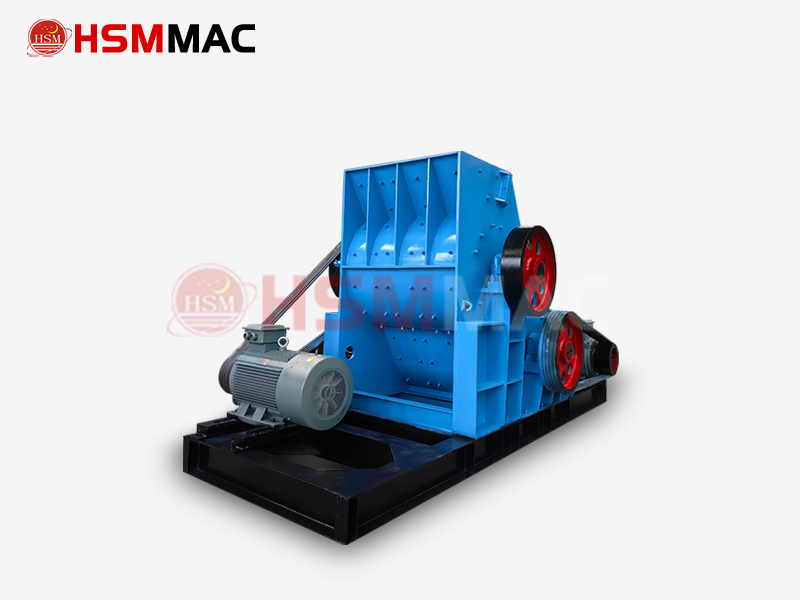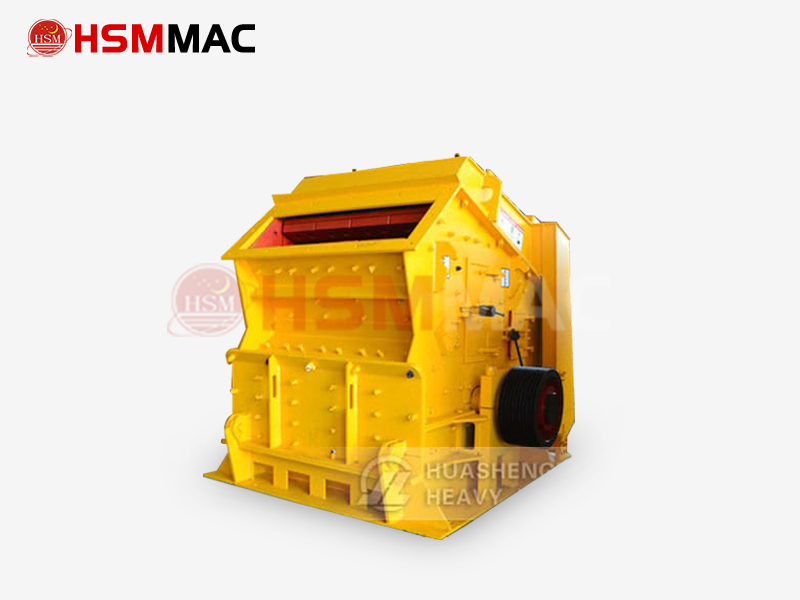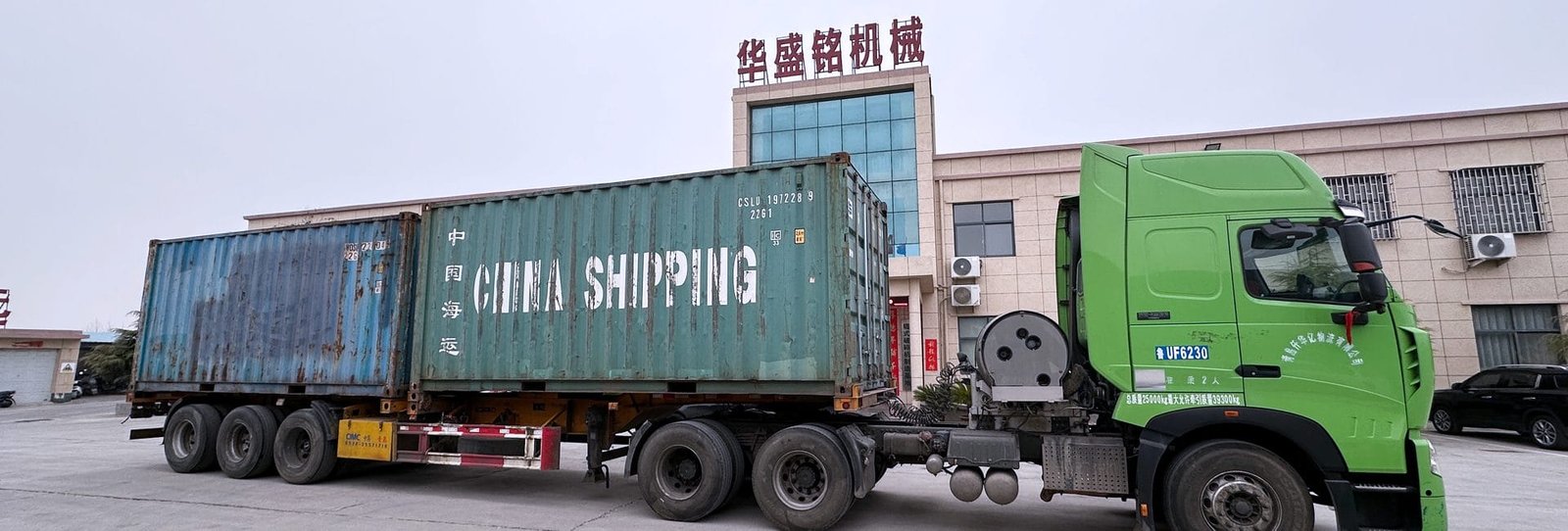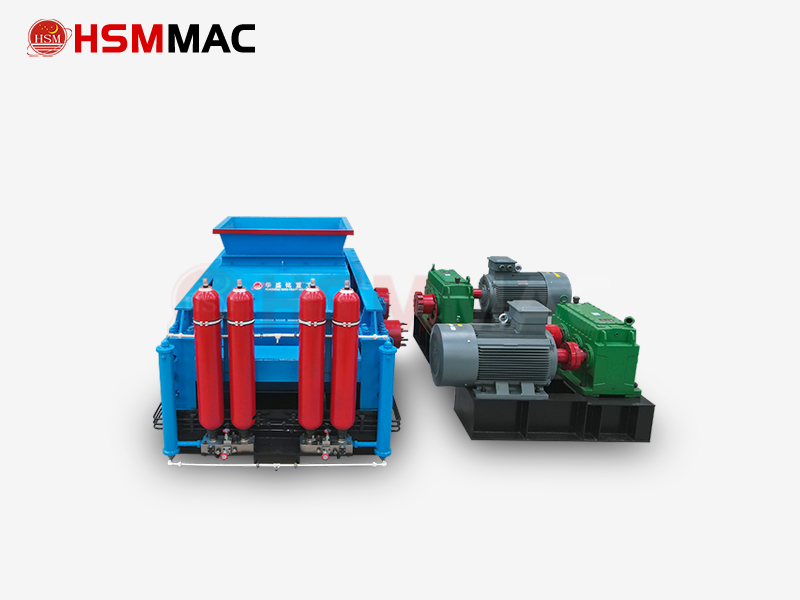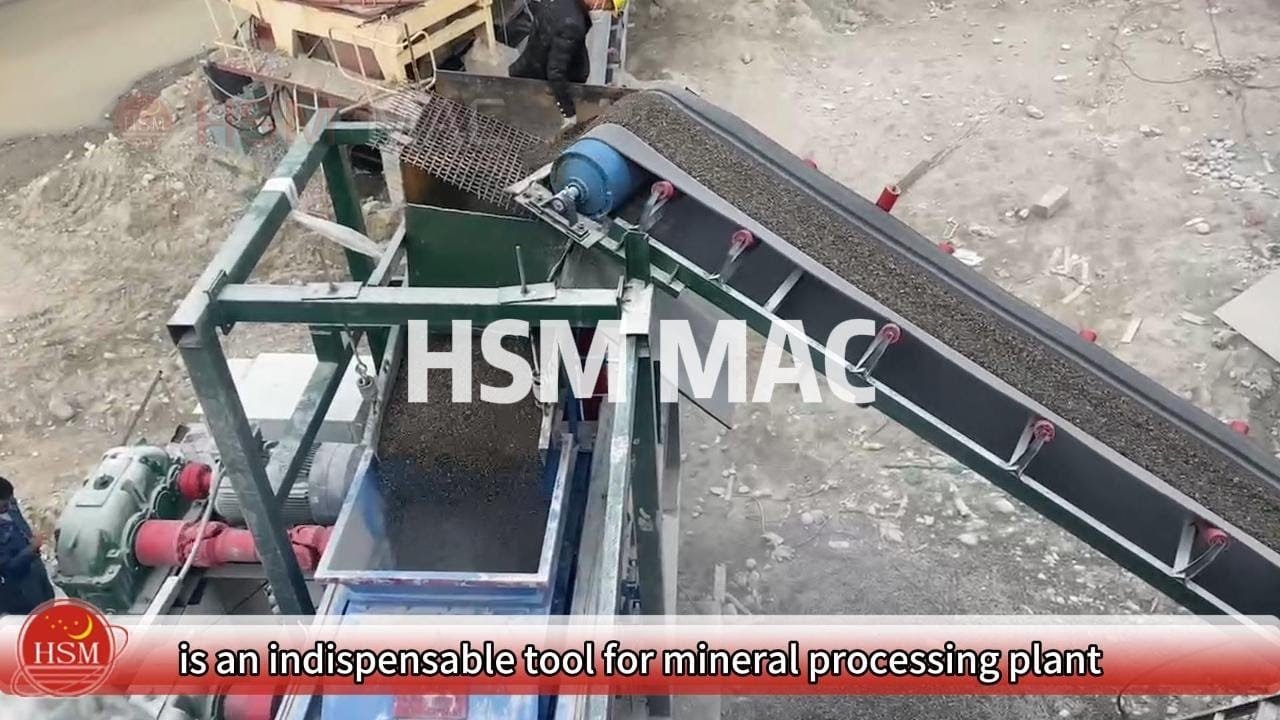The use of double-tooth roller crushers (especially the double-tooth roller type) for glass crushing offers significant advantages. Their high efficiency, low powderisation, and wear resistance perfectly align with the brittle nature of glass and recycling requirements. The following is a professional analysis and selection recommendation based on comprehensive information from multiple sources:

Double-tooth roller crusher
1.Double-tooth roller crusher Core Advantage Analysis
Low powder generation rate, enhancing recycling value
Precise particle size control: The double-tooth roller crushes glass through compression and shearing, producing uniform particle sizes (typically 10–200 mm) with a powder rate <10%, far lower than hammer crushers (which can produce over 30% fine powder), thereby avoiding the issue of glass powder being difficult to remelt and reuse.
High adaptability: Can process flat glass, glass bottles, large glass fragments, etc. The crushed particles can be directly used for manufacturing new glass bottles, glass fibre, or building insulation materials.
High efficiency and energy savings, outstanding production capacity
High processing capacity: Hourly output ranges from 7 to 300 tonnes (depending on the model), such as the 2PGC600x900 model with an hourly output of 80-120 tonnes, and the 2PGC1200x1500 model reaching 200-300 tonnes, meeting the demands of large-scale recycling.
Energy efficiency: Energy consumption per unit is 20%-30% lower than jaw crushers. The dual-roll differential design accelerates material feeding and reduces the risk of blockages.
Durable and easy to maintain
Material and process: Roll teeth are made of high-manganese steel or wear-resistant alloys (e.g., products from Huashengming Heavy Industry), with a lifespan exceeding one year under continuous operation. The tooth design distributes stress and reduces damage from hard object impacts.
Easy maintenance: Modular tooth plates are replaceable, and roller gaps can be adjusted online via a hydraulic or wedge system, reducing maintenance costs by over 30%.
Environmental protection and safety
Low pollution: Sealed structure + dust-proof panels reduce dust leakage by 60%, with noise levels ≤85dB (meeting industrial standards).
Intelligent protection: Automatic shutdown in case of overload, hydraulic couplers prevent motor damage, and prevent accidents caused by metal objects entering the machine.
2.Double-tooth roller crusher Key selection parameters and recommended models
Based on the processing scale and output requirements, refer to the parameters of manufacturers such as Huashengming Heavy Industry:
| Model | Feed particle size (mm) | Discharge particle size (mm) | Production capacity (t/h) | Application scenarios |
| 2PGC450x500 | 300-500 | 15-100 | 30-60 | Small and medium-sized recycling plants (daily processing capacity ≤ 50 tonnes) |
| 2PGC600x900 | 300-600 | 30-150 | 80-120 | Large production lines (construction/industrial glass) |
| 2PGC900x1200 | 700-950 | 30-200 | 180-220 | Industrial-grade processing centres (hourly production capacity ≥ 200 tonnes) |
| 2PGC1200x1500 | 800-1050 | 30-200 | 200-300 | Large-scale glass recycling projects |
Note:
Particle size adjustment: Control the output by adjusting the roller gap (e.g., fine crushing below 1 cm) or replacing the tooth shape (equal tooth shape/unequal tooth shape).
Special requirements: Large pieces of glass (>1 m³) must be pre-crushed to less than 300 mm and a magnetic separator must be used to remove metal impurities.
3.Double-tooth roller crusher Operational and Cost Optimisation Recommendations
Pre-processing and Supporting Equipment
Debris Removal: A pre-magnetic separator removes metal objects such as bottle caps and wires to protect the roller teeth.
Pre-crushing: For oversized glass (e.g., sheets thicker than 50 cm), a jaw crusher is used for coarse crushing to prevent overload of the double-tooth rollers.
Maintenance Points
Daily Maintenance: Check bearing lubrication at each shift, regularly clean residual glass debris (to prevent corrosion), and adjust roller gaps to ensure consistent particle size.
Wear Part Replacement: Replace worn tooth plates promptly (costing approximately 5–10% of the equipment price), and recommend spare tooth plates to enhance continuous operation capability.
Cost and Procurement
Price Range: Small-scale equipment (e.g., 2PGC400x250) costs several ten thousand yuan, while large customised machines (e.g., 2PGC1200x1500) can reach several hundred thousand yuan.
Cost-Effectiveness Strategy: Choose direct supplier (e.g., Huashengming Heavy Industry) to avoid intermediary markups, and focus on energy efficiency certification and after-sales service (e.g., free trial runs, year-round technical support).
4.Double-tooth roller crusher Summary: Core Value of Double-Tooth Roller Crushers
Double-tooth roller crushers excel in glass crushing due to their low powder generation, high production capacity, and strong wear resistance. When selecting a model, match production capacity and particle size requirements (e.g., choose a smaller roller gap model for fine recycling), and enhance pre-processing and maintenance to extend service life. For large-scale projects, models such as 2PGC900x1200 or larger are recommended; for medium to small-scale projects, the 2PGC450x500 model can be selected to balance cost and efficiency. Direct purchasing from manufacturers combined with iron removal and dust collection equipment can further optimise operational efficiency and promote the efficient recycling of glass resources.










